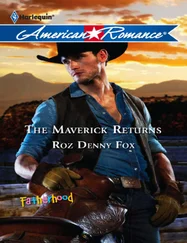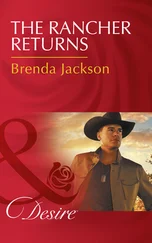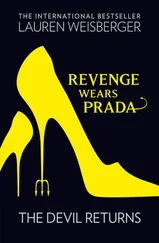“We wouldn’t want anything called off,” Hagen said. “It’s important that justice be served. Moving forward, getting back to business without the disruption these false accusations have caused, that’s in the best interest of all involved.”
“Hard to argue with that,” said the Ambassador, nodding. They had a deal, presuming Hagen had come through.
“And you, sir, flatter me,” Hagen said. “Or rather, our business connections. As I’m sure you’re aware, many people have a say in choosing a person to give the nominating speech at the national convention next year. We’ve spoken to people, it’s true. The convention is set for Atlantic City. That’s definite now.”
“Definite?”
Hagen nodded.
The old man shot a fist into the air, an oddly boyish gesture. This was terrific news for him, of course. Now, even if the more delicate aspects of this deal fell through, Governor Shea would, at minimum, be able to take credit for bringing the convention-and the conventioneers and their money-to his state.
“The location is a helpful sign,” Hagen agreed. “Having the governor of the host state deliver the nominating speech will strike a lot of people as a good idea. After that, who knows?”
After that, Hagen said, as if the speech were sure to happen, which the Ambassador now understood that it was.
“Theoretically speaking,” the Ambassador said. “Once Jimmy gives the speech-”
Hagen nodded. The list of if s was long. “I’m a careful but optimistic man, sir. Let’s just call it a long haul to 1960.”
Haul being the operative word. If the most important if s went right, the labor unions the Corleones controlled would support James Kavanaugh Shea’s bid for the White House.
“Rumor has it,” said the Ambassador, escorting Hagen though the house now and to the waiting golf cart, “you have political aspirations yourself.”
“You know how it is, sir,” Hagen said. “This is America. Land of opportunity. Any boy can grow up to be president.”
The Ambassador laughed like hell, handed him a cigar, and sent him on his way. “You’ll go far,” he shouted after him, as if Tom Hagen’s life up to now had been nothing, nowhere.
I T WOULD BE YEARS before anyone outside the Chicago outfit learned that Louie Russo had ordered a hit on Fredo Corleone. Russo had nothing against Fredo per se. It is a meaningless coincidence that the attempt to kill him came a few months after Russo’s estranged son (and namesake) moved to Paris and began his life as an openly gay man. That said, Russo Jr. did live in Las Vegas for a year, and he was the indirect source of his father’s intelligence on Fredo Corleone’s occasional proclivities. The killers were supposed to wait until they found Fredo in bed with another man-ideally near dawn, so it would seem more incriminating-then make it look as if Fredo had shot the other guy and then himself. This sordid scene would humiliate and weaken Michael Corleone-who’d just named his brother sotto capo, to the dismay of many in his own organization-without Chicago getting blamed for anything or having to fear any reprisals. It wasn’t only violent reprisals Russo was trying to avoid, either. He desperately wanted a seat on the Commission, La Cosa Nostra ’s ruling body-something that he’d never get if it became known that he’d killed a made member of another Family without first getting the Commission’s approval. It might have all worked, too, if, after slipping the phony suicide note under the windshield wiper of Fredo’s borrowed car, one of the killers hadn’t had a violent colon spasm and been forced to stop at a filling station men’s room.
Fredo Corleone would live another four years, though he never found out what happened. He might have figured it out if he hadn’t turned on the windshield wipers and mangled the phony note. The ink had bled, and all that was legible was “Forgive me, Fredo.” Fredo presumed the note had been from that desperate faggot salesman from last night, asking for forgiveness-which, in Fredo’s experience, those sick people were always doing.
As for the cops, they took him inside the white A-frame building alongside the customs booths, gave him a handwriting test, which he took, and started asking a lot of questions, which he refused to answer without a lawyer present. He mentioned that though he was from out of town, his good friend Mr. Joe Zaluchi could probably recommend an attorney. The handwriting didn’t match, and a police captain on Zaluchi’s payroll materialized and said he’d take everything from here. Everyone but the captain still thought they were dealing with an assistant trailer park manager from Nevada named Carl Frederick who was that rare drunk made more agile and articulate by a few stiff belts.
Fredo said he had to make a couple quick phone calls, and the captain told the other men they could go. Fredo took a seat behind a desk like he owned the place and called the airport to have them page his bodyguards, who would have expected him there an hour ago. The captain sat down at a desk across the room and started eating the confiscated oranges. There was a battered radio on the filing cabinet next to him, and he turned it on. A bouncy Perry Como song came blaring out and Fredo frowned and the captain turned it down and mouthed, “Sorry.”
Fredo kept waiting, but neither Figaro, which is what he called the barber, or the goatherd came to the phone. He hung up and had the operator connect him with Joe Zaluchi. There was no listing, of course. The captain was sipping coffee and going at those oranges like crazy, averting his eyes, giving Fredo his privacy.
“Sir?” Fredo said. “You don’t by any chance know how I can get in touch with Joe Z.?”
“No idea,” the captain said, winking. He’d loved the sir. “What do you need?”
“I borrowed a car from him. I already missed one flight. If I take time to drop the car off back in Grosse Pointe, I’ll never-”
The captain waved him off. “Leave it here. The airport’s on my way to where I’m going. I’ll give you a lift. I’ll take care of things with the car later.”
That would have been suspicious, except that the guy had been at the wedding yesterday.
“Thanks,” Fredo said, and tried the airport once more. Again, nothing. He called the phone service in Las Vegas. “It’s Mr. E.,” he said-short for “Mister Entertainment.” “Anybody asks, tell ’em I missed my plane but I’ll be on the next one, guaranteed, all right?”
Fredo would certainly have figured everything out if he hadn’t told the captain to turn down the radio. When the song finished, the news came on. Among the top stories: police were investigating a homicide at a motel in Windsor. A restaurant supply salesman from Dearborn claimed that the door to his room had been broken down by two armed intruders, both of whom he had shot with a Colt.45. One intruder had died; the other-Oscar Gionfriddo, age forty, a vending machine supplier from Joliet, Illinois -was in critical condition at Salvation Army Grace Hospital. The dead man’s identity had not yet been released. The shooter said that the gun belonged to a friend. “I never fired a gun before in my life,” the man said. His voice cracked. “I can’t believe my luck.” He came off more like a winner of the Irish Sweepstakes than someone who’d just killed one, maybe two men.
The captain, of course, had no reason to think anything of it, and the radio was far too soft for Fredo to hear from across the room.
The phone rang. The captain answered. It was the bodyguard, the barber. Figaro. Fredo told him he’d be right there.
“All set,” Fredo told the captain.
Читать дальше











